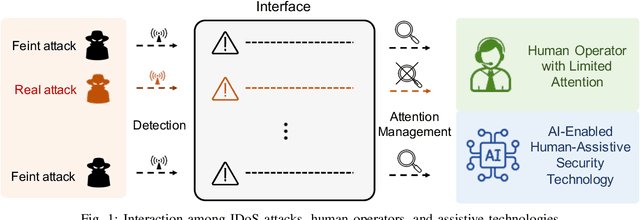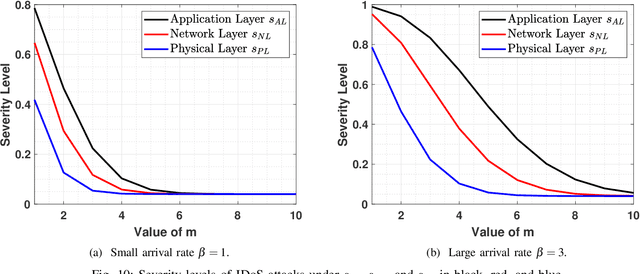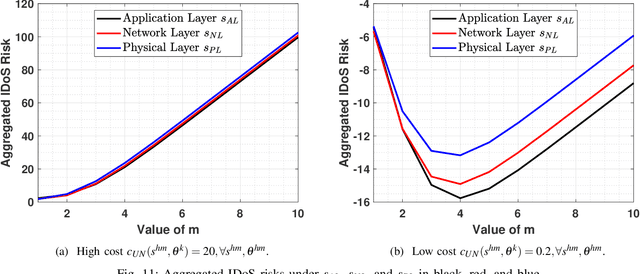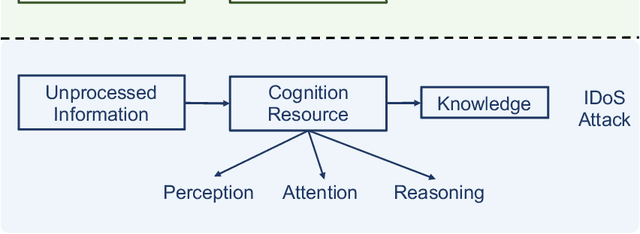Combating Informational Denial-of-Service (IDoS) Attacks: Modeling and Mitigation of Attentional Human Vulnerability
Paper and Code
Aug 04, 2021



This work proposes a new class of proactive attacks called the Informational Denial-of-Service (IDoS) attacks that exploit the attentional human vulnerability. By generating a large volume of feints, IDoS attacks deplete the cognition resources of human operators to prevent humans from identifying the real attacks hidden among feints. This work aims to formally define IDoS attacks, quantify their consequences, and develop human-assistive security technologies to mitigate the severity level and risks of IDoS attacks. To this end, we model the feint and real attacks' sequential arrivals with category labels as a semi-Markov process. The assistive technology strategically manages human attention by highlighting selective alerts periodically to prevent the distraction of other alerts. A data-driven approach is applied to evaluate human performance under different Attention Management (AM) strategies. Under a representative special case, we establish the computational equivalency between two dynamic programming representations to simplify the theoretical computation and the online learning. A case study corroborates the effectiveness of the learning framework. The numerical results illustrate how AM strategies can alleviate the severity level and the risk of IDoS attacks. Furthermore, we characterize the fundamental limits of the minimum severity level under all AM strategies and the maximum length of the inspection period to reduce the IDoS risks.
 Add to Chrome
Add to Chrome Add to Firefox
Add to Firefox Add to Edge
Add to Edge